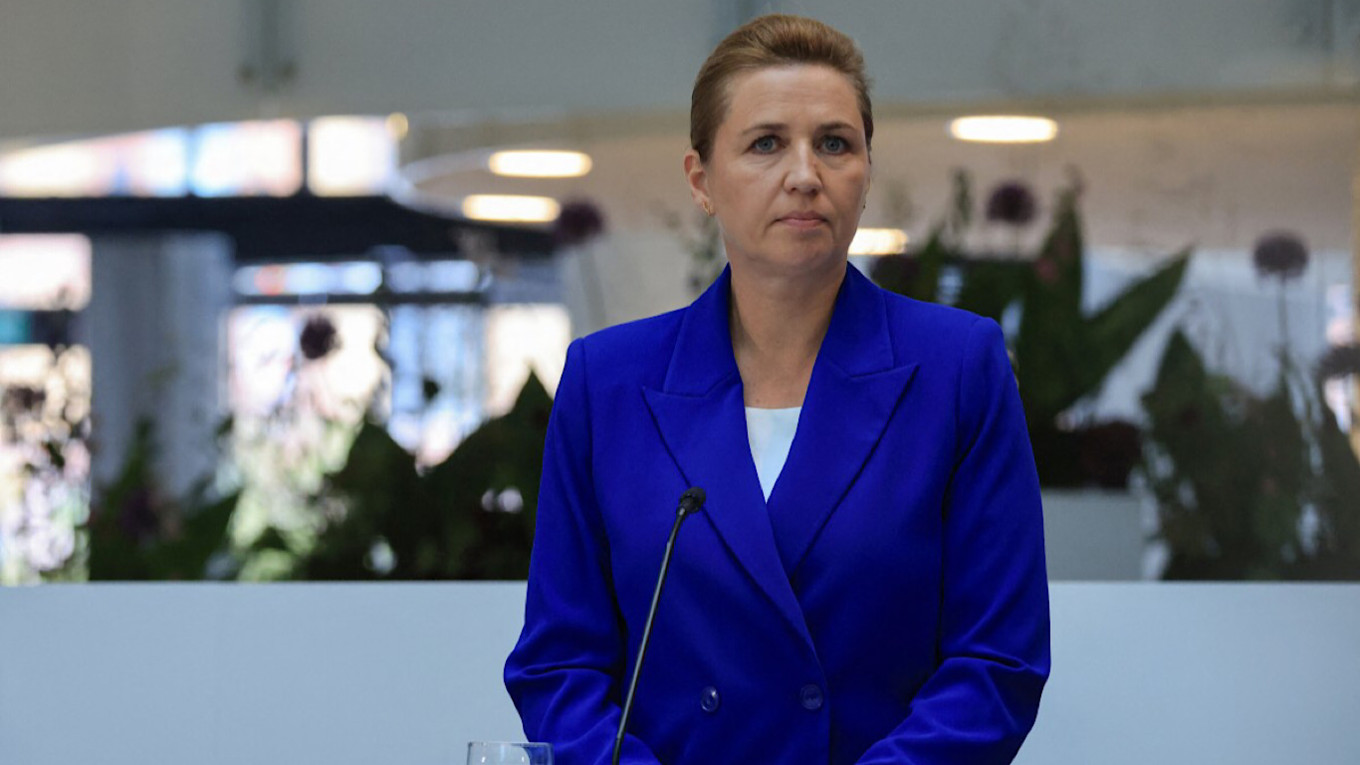On Wednesday, Danish Prime Minister Mette Frederiksen called on Europe to intensify its response to Russia’s “hybrid warfare” while hosting EU leaders for defense discussions, conducted under strict security measures due to recent unexplained drone activities.
A significant police presence was mobilized, civilian drones were prohibited, and NATO allies contributed additional support to ensure the safety of the summit at Copenhagen’s historic Christiansborg Palace.
“I hope everyone now acknowledges that we are facing a hybrid war,” Frederiksen stated.
Denmark, currently holding the rotating presidency of the EU, has been unsettled recently by unidentified drones that disrupted airport operations and flew close to military installations.
Although suspicions have emerged regarding Russia’s involvement, no specific perpetrator has been confirmed to date.
The drone incidents have highlighted vulnerabilities in Europe’s defenses, especially following notable aerial incursions by Russia over Poland and Estonia.
“We are confronted with the most significant security challenge since World War II,” Frederiksen remarked.
In the Danish capital, EU leaders were focused on outlining priority defense initiatives, including a “drone wall” designed to counter Russian operations.
“This is a repeating pattern that originates from Russia,” European Commission President Ursula von der Leyen told journalists.
“Russia seeks to test our resolve while also attempting to instigate division and unrest within our societies. We will not allow this to occur.”
The EU is aiming to establish a defense system capable of detecting and, eventually, neutralizing drones.
The bloc intends to leverage the combat-tested expertise of Ukraine, with President Volodymyr Zelensky scheduled to join a larger assembly of European leaders on Thursday.
Wednesday’s discussions represented a further step in the EU’s preparations for a potential conflict with Russia by the year 2030, amidst rising concerns that Moscow may plan attacks in the near future.
“We are in confrontation with Russia,” stated French President Emmanuel Macron, highlighting Moscow’s disinformation campaigns, cyberattacks, and violations of airspace.
The 27-member bloc has already devised a €150 billion loan program to support defense expenditures, with a significant portion allocated to eastern nations.
Brussels has proposed that countries collaborate on four “flagship” projects: the drone wall, securing the eastern territory, missile defense systems, and a space “shield.”
While the EU aims to brace itself for possible future conflicts, a pressing concern remains how to provide financial assistance to Ukraine in its fight against Russia’s ongoing invasion.
Leaders are evaluating a proposal from Brussels to use frozen Russian central bank assets to fund a new €140 billion loan for Kyiv.
“Russia is inflicting enormous damage on Ukraine right now, and it is unfair for anyone other than Russia to bear the costs,” stated EU foreign policy chief Kaja Kallas.
As U.S. support for Ukraine has diminished under the Trump administration, the proposal received backing from influential German Chancellor Friedrich Merz last week.
However, some nations remain doubtful, despite the prevailing belief among others that assisting Kyiv is essential to address imminent budget deficits.
Luxembourg’s Prime Minister Luc Frieden expressed concerns, stating that the proposal raises numerous questions, and he seeks answers before proceeding.
“All proposals are welcome, but we must first ensure their practicality,” he emphasized.
In addition to efforts to sustain Ukraine financially, officials are also striving to keep Kyiv’s EU membership aspirations on track, despite opposition from Hungarian Prime Minister Viktor Orban.
European Council Chief Antonio Costa, who presided over the summit, has been seeking support for a plan that would prevent countries from vetoing each phase of the negotiations.
Nevertheless, Orban firmly rejected the initiative, responding with a definitive “no” when asked about Ukraine’s chances of joining the bloc.

